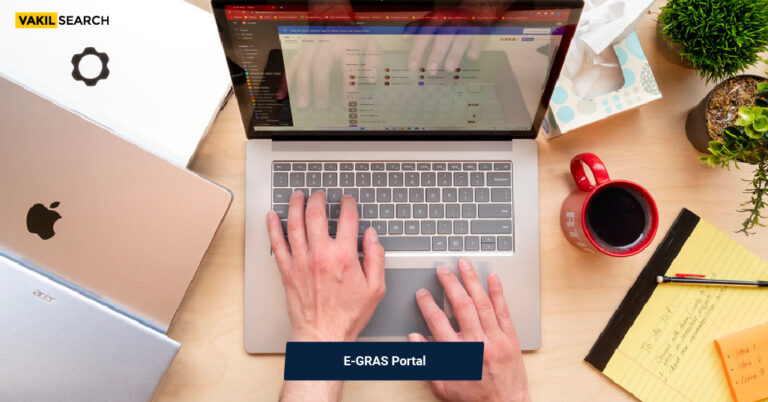Regardless of what kind of small business you own or plan to start, you need to stay on top of small business accounting basics!
Small business and startup owners are swamped with way too many tasks on their daily to-do lists. Entrepreneurs need to stop fulfilling their own accounting requirements for small businesses. Many business owners will find it challenging to manage other underlying variables as a result of the increased pressure. Small business accounting is not a strong suit for all entrepreneurs, and that is completely fine.
But just having some knowledge about basic accounting for small businesses will help in the long run, don’t you think so? For owners with limited or no knowledge of business accounting basics, it can be quite difficult. But what if we share some pointers that can help you manage your operations smoothly, prevent audits, and plan for the future? These accounting tips for small business owners help them take better control of their business finances.
What Is Small Business Accounting?
Small business accounting entails keeping track of the company’s revenue and expenses. Simply put, small business accounting is the process of recording the inflow and outflow of funds from a business account. It includes keeping track of bills paid for conducting business, as well as invoices, purchase orders, advance payments, and bills paid. As you would have thought, it’s a sizable department, but for a small business, it’s all about:
- Taking notes on financial transactions.
- Creating accounting reports.
- Tax filing.
But if not done properly, it can become very chaotic. Do you wish to learn some accounting advice for small businesses? Let’s get going.
Best Practices To Consider For Small Business Accounting
Here are some tips that will help for the small business accounting
Separate Your Business & Personal Bank Account
The last thing a small business owner wants to do is look through their personal account for a single business transaction. The financial health of your company will benefit the most from your level of organisation. You must keep your business earnings and expenses entirely separate from your personal expenses, even if you are using personal funds for your business.There are many advantages to keeping a separate company bank account.
Want to know them? When personal and business banking are kept separate, business owners can
- Better organise and manage their commercial activities.
- Minimises anxiety and uncertainty around tax deadlines.
- Makes you appear more trustworthy and professional.
- Maintain an accurate audit trail.
- Accurate handling of financial flow.
- Safeguard the money in your savings account.
Furthermore, you should keep your professional and personal credit cards separate.
Invoice Accurately
Invoicing is an essential component of any organisation. It is a significant phase in the business process that usually seems time-consuming and burdensome. Small errors in your invoices have an impact on your capacity to get paid. Invoices must include all pertinent details about the transaction and be delivered on time. To accomplish this, you will need the help of an efficient legal service.
The following are some benefits of invoicing for small businesses:
- Proper invoicing serves as an excellent record-keeping tool.
- Gives your brand or small business a professional appearance.
- Serves as valid evidence of a given service.
- Helps you maintain better organisation in your sales.
Keep an Eye on Accounts Receivables
Your company’s ability to survive and perform substantially depends on your accounts receivable. You must check in with your customers to make sure they are paying their invoices on time if you want the money to keep coming in. You need to build an efficient invoicing system and have a strong internal structure in order to be able to get paid on time. You can track, maintain, and receive regular alerts about unpaid invoices with the use of an effective invoicing system.
Owners will benefit from keeping an eye on their accounts receivable by
- Making sure they are receiving their payments on time.
- Helps in planning ahead.
- Don’t fluctuate your financial flow.
- Facilitates the smooth operation of your business.
Create a Budget for Meeting Goals & Objectives
One of the first steps in accounting for small business owners should be the preparation of a budget. It entails creating expected income and expenses. You can establish a baseline for what you need to work on with the help of the budget.
Small businesses that have a set accounting budget can:
- Allocate the proper resources.
- Make better decisions.
- Accomplish specific business goals.
- Keep an eye on results.
- Plan your future.
Keep Your Books Updated
Having well-organised books is essential for any firm. It makes business and financial planning simple.To get insightful knowledge about your company, you must have well-organized books. These insights and ideas are formed by collecting actionable data. The inadequate upkeep of their book of accounts is a major factor in the underperformance of many businesses. The following are just a few advantages of keeping your books up to date:
- Helps in maintaining your company’s budget.
- Helps to provide you with a forecast of accurate financial projections.
- Avoid the burden of searching for appropriate information during the season.
- Gives you the ability to be ready for emergencies.
- Avoid making mistakes.
- It becomes simpler to abide by the legal requirements.
Record & Track Every Business Expense
Expenses including consultancy fees, direct labour costs, office supplies, travel, and utility must be documented and kept up to date. Use specific business credit cards, keep track of your spending, and document all of your receipts.
There are many different types of expenses:
- Fixed
- Variable
- Period
- Interest
- Depreciation
The following are some benefits of tracking and recording expenses:
- It is necessary for maintaining a smooth cash flow.
- It assists you in identifying which costs are eligible for tax deductions.
- Helps you figure out how well your company is going.
- Provides insight into particular costs and cash flow.
- Helps in classifying your expenses.
Get Legal Help for Tax Preparation
Professionals who deal with small business taxes stay up to date on all the modifications and changes, making tax preparation simpler for them than it will be for you. In contrast to managing it on your own, hiring a skilled legal service like Vakilsearch will help you avoid problems and audits and accomplish more solid results for your organisation.
It will enable a small business owner to:
- Reduce costs and time.
- Get support for inquiries and problems relating to small business taxation.
- Avoid making costly errors
- Easily identifying deductions
- Lowering audit risk
Conclusion
Many entrepreneurs have tried and tested these small business accounting basics. It has helped them in establishing a better accounting system and successfully manage business finances with utmost precision. Solid financial plans and statements have been shown to influence the long-term profitability of any business.If you’re looking for better financial management tips, our expert pool of financial advisors at Vakilsearch can provide you with the best financial advice and help you run a successful small business.
Also, Read:









